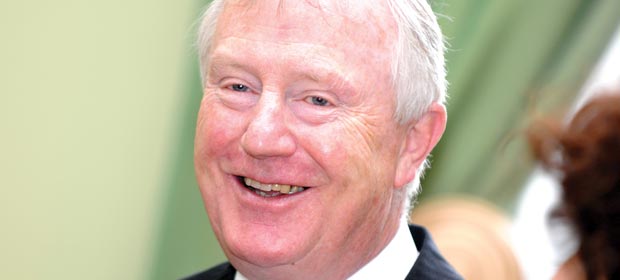In one of his great songs from 1999, Paul Brady poses a series of questions and admits that in each case – ‘the answer is, nobody knows,’ writes Denis Doherty.

The British Prime Minister, Teresa May, has taken to asserting that ‘Brexit means Brexit’. What does she mean by that? The answer is, nobody knows.
Four core requirements of EU membership are acceptance of the right to free movement of people, goods, services and capital. These apply also in cases of special relationships offered to non-EU members, for example Norway and Switzerland.
Little consideration has been given, in the public debate so far, to the likely consequences for Irish healthcare professionals and Irish patients of Britain leaving the EU.
It appears that Britain does not have a difficulty in relation to the free movement of goods, services and capital but is not any longer prepared to accommodate the free movement of people from the EU into Britain. The likely result of persisting with that position is that the parting of the ways will be acrimonious and will have serious implications for Ireland’s relationship with the EU and with Britain.
Little consideration has been given, in the public debate so far, to the likely consequences for Irish healthcare professionals and Irish patients of Britain leaving the EU.
The NHS has always been a big employer of Irish doctors, nurses and healthcare workers. Many Irish people trained in the NHS and enjoyed satisfying, well paid careers in Britain. Others returned to work in our health service having trained in the NHS and gained valuable experience there. The traffic has not been all one way. There are many Irish people now working in the NHS, at all levels and across the full range of health professions, who trained in Ireland. Even though NHS employers are still actively recruiting in Ireland many of them are fearful that some of their existing Irish staff members may become concerned about the security of their jobs, and leave to return to jobs at home. That fear is compounded by the sharp fall in the value of the pound sterling against the euro, which has eroded the perceived competitive advantage enjoyed by NHS employers up until recently.
The argument that the special relationship between Britain and Ireland, which predates our membership of the EU, will endure is used to allay that fear. The fact is that up until now, Britain and Ireland have together been either members or non-members of the EU. Will the special relationship be capable of surviving the departure of Britain from the EU? What would be the implications of, for example, Britain deciding to discontinue the reciprocal recognition of qualifications obtained in EU Member States? The answer is, nobody knows!
Of more concern to Irish patients ought to be the discontinuation of our entitlement to source treatment in Britain.
Bilateral arrangements between Ireland and Britain may offer a solution but at a cost. Regulators of the health professions in Ireland would have to put arrangements in place to take account of whatever arrangements replace the current mutual recognition of qualifications arrangement. Would Irish and other EU citizens, holding qualifications awarded in Britain, have to follow the non-EU countries route to establish their entitlement to practise in the EU? The answer is nobody knows!
Patients’ current entitlement, to avail of health services in Britain and Northern Ireland, will also change. The current EHIC entitlement of Irish citizens to health services in Britain and Northern Ireland, while visiting there, will cease when Britain leaves the EU. It could be replaced by a bilateral arrangement between Ireland and Britain, but neither of the parties to that agreement would be obliged to offer terms as favourable as those we currently enjoy.
Of more concern to Irish patients ought to be the discontinuation of our entitlement to source treatment in Britain, in certain circumstances, where there are delays in having the treatment concerned offered here, and have the cost involved met by the HSE. Efforts will be made to allay that concern by pointing to the possibility of the entitlement being replaced by a bilateral agreement that would offer a similar level of entitlement. It will also be pointed out that the option of what is known as the S2 route will continue. That assumes that Britain will become a member of the European Economic area. Entitlements using the S2 route are more restrictive and less favourable than those covered by the EU Directive on Cross Border Healthcare. A bilateral agreement would be unlikely to have enshrined in it the range of protections a EU Directive affords patients.
Waiting lists for treatment in our hospitals are, we are told, at an all time high. Why then are patients not being informed of their entitlement to seek the treatment they require in a hospital elsewhere in the EU and obtain reimbursement, of what the treatment would cost in Ireland, from the HSE? Why are patients who have been judged to require treatment for a medical condition, that is not immediately available here, not encouraged to avail of their entitlement to seek treatment in another EU Member State? The answer, it seems, is cost!
In reality, waiting lists are a crude mechanism for controlling costs. Money spent on treating Irish patients abroad comes out of the same pot from which our hospitals are funded. For that reason, Irish governments may not be enthusiastic about putting new arrangements in place to replace entitlements of patients to avail of treatment in Britain following Britain’s departure from the EU.
For the present then, we are left still wondering – why did David (Cameron), like Elvis in Brady’s song, throw it all away? The answer to that too is, nobody knows!

